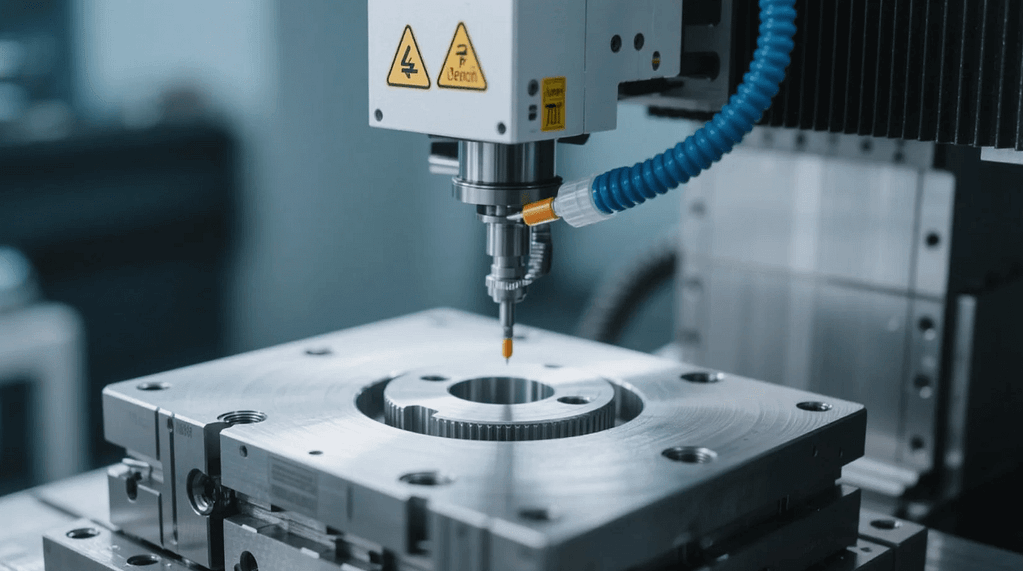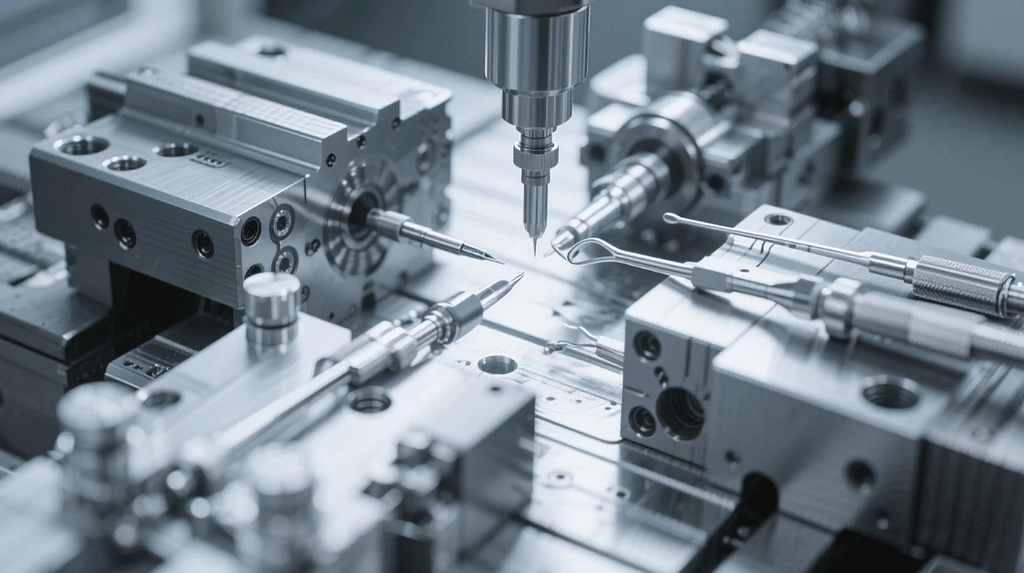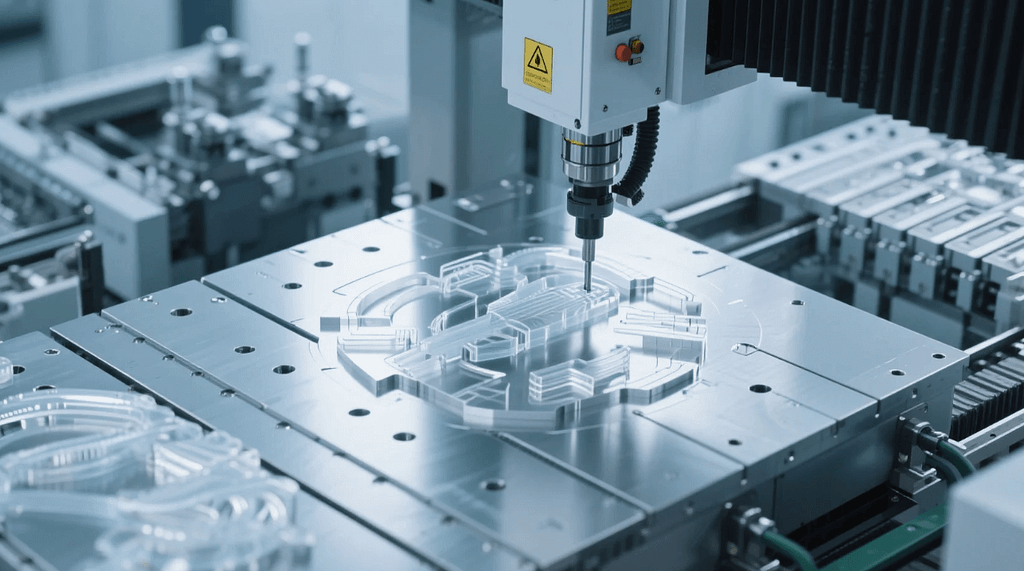In the rapidly evolving landscape of healthcare, the demand for sophisticated, reliable, and highly precise medical devices has never been greater. At the heart of this innovation lies CNC machining in medical device manufacturing, a cornerstone technology that has revolutionized the production of everything from surgical instruments to intricate implantable devices. This article delves into how Computer Numerical Control (CNC) machining not only meets but often exceeds the stringent requirements of the medical industry, particularly focusing on its crucial role in creating precision industrial models that pave the way for groundbreaking medical advancements.
The Indispensable Role of CNC Machining in Medical Device Manufacturing
The medical device industry operates under extremely tight tolerances, requiring absolute accuracy, repeatability, and sterility. Deviations of even a few microns can have significant consequences for patient safety and device efficacy. This is precisely where CNC machining in medical device manufacturing shines. Unlike traditional manufacturing methods, CNC machines are automated, computer-controlled tools that can execute complex designs with unparalleled precision. This automation minimizes human error, leading to consistently high-quality products.
Unrivaled Precision for Critical Applications
The ability of CNC machines to achieve micron-level accuracy is paramount in medical device production. Consider a hip implant, for instance. Its precise geometry and surface finish are critical for proper integration with bone and long-term patient comfort. Similarly, surgical tools require exact dimensions to ensure they function as intended during delicate procedures.
CNC machining in medical device manufacturing excels in these areas because of its closed-loop control system. This system continuously monitors the cutting process, making real-time adjustments to maintain accuracy. Furthermore, advanced CNC machines can work with a wide range of biocompatible materials, including titanium, stainless steel, and various medical-grade plastics, which are essential for creating devices that can safely interact with the human body.

Speed and Efficiency in Production
Beyond precision, the speed and efficiency offered by CNC machining in medical device manufacturing are invaluable. Once a design is programmed, the machine can produce multiple identical parts quickly and consistently. This is crucial for scaling up production to meet market demand, especially for high-volume medical consumables or widely used diagnostic equipment. The automated nature of CNC also reduces labor costs and streamlines the manufacturing process, contributing to a more cost-effective production model.
Enabling Complex Geometries and Prototyping
Many modern medical devices feature incredibly complex geometries, from the intricate channels within a fluidic device to the microscopic features of a micro-surgical tool. These designs would be nearly impossible to achieve with traditional methods. CNC machining in medical device manufacturing overcomes these challenges by precisely carving out even the most intricate shapes.
Moreover, the ability to rapidly produce prototypes is a significant advantage. Before mass production, medical device manufacturers often need to create several iterations of a device for testing and regulatory approval. CNC machining allows for quick turnaround of these prototypes, accelerating the design and development cycle. This iterative process is vital for refining designs, identifying potential issues early, and ultimately bringing safer and more effective devices to market faster.
The Focus on Precision Industrial Models
For companies providing precision industrial model services, CNC machining in medical device manufacturing represents a core competency. These models are not just aesthetic representations; they are functional prototypes and verification tools that are essential at various stages of product development.
From Concept to Reality: Validating Designs
Precision industrial models created through CNC machining serve as tangible representations of digital designs. Engineers and designers can physically examine and test these models to validate the design’s functionality, ergonomics, and fit. This is particularly important for devices that will interact directly with patients or other medical equipment. For example, a scale model of a new surgical robot arm allows for early testing of its range of motion and surgical dexterity without the expense of building a full-scale, functional prototype.
Ergonomics and User Experience
In medical device design, user experience and ergonomics are paramount. A device, no matter how technologically advanced, must be intuitive and comfortable for healthcare professionals to use effectively. Precision industrial models allow for hands-on evaluation of these factors. Medical professionals can provide feedback on the feel, balance, and ease of operation of a device model, leading to design improvements that enhance usability and reduce the risk of errors during critical procedures.

Regulatory Compliance and Testing
Before a medical device can be launched, it must undergo rigorous testing and achieve various regulatory approvals. Precision industrial models can be used for initial functional testing, stress analysis, and even some biocompatibility tests depending on the material. While not always the final product, these models provide valuable data that informs the final design and helps to demonstrate compliance with industry standards and regulations. This proactive approach helps to streamline the approval process and minimizes costly redesigns later in the development cycle.
The Advantage for Service Providers
For businesses offering precision industrial model services, specializing in CNC machining in medical device manufacturing positions them as indispensable partners to medical device companies. By leveraging advanced CNC capabilities, these service providers can offer rapid prototyping, high-fidelity models, and specialized expertise in medical-grade materials and finishing processes. This allows medical device innovators to focus on research and development, outsourcing the complex and time-consuming task of model creation to experts.
Ethical Considerations and Future Outlook
The ethical implications surrounding medical device manufacturing are profound. The commitment to precision, quality, and safety in CNC machining in medical device manufacturing directly translates into improved patient outcomes and enhanced quality of life. The industry is constantly evolving, with new materials, advanced software, and more sophisticated CNC technologies emerging. Looking ahead, we can anticipate even greater levels of automation, integration with artificial intelligence for optimized design and production, and the development of entirely new types of medical devices made possible by continuous advancements in CNC machining. The responsible application of this technology will continue to be critical for the ethical and effective advancement of healthcare.
结论
CNC machining in medical device manufacturing is far more than just a manufacturing technique; it is a critical enabler of innovation, precision, and safety in healthcare. Its unparalleled accuracy, efficiency, and ability to create complex geometries have made it indispensable for developing everything from life-saving implants to intricate surgical tools. For precision industrial model service providers, specializing in this domain offers a unique opportunity to partner with medical innovators, transforming digital designs into tangible realities that pave the way for a healthier future. The continuous evolution of CNC technology promises to unlock even more possibilities, further cementing its role at the forefront of medical device advancement.
常见问题
Q1: What types of medical devices are commonly manufactured using CNC machining?
A1: A wide range of medical devices are produced using CNC machining, including surgical instruments (e.g., scalpels, forceps, drills), orthopedic implants (e.g., hip and knee replacements, spinal implants), dental implants, prosthetics, and components for diagnostic equipment and drug delivery systems.
Q2: What materials are typically used in CNC machining for medical devices?
A2: Common materials include various grades of stainless steel, titanium and its alloys, medical-grade plastics (e.g., PEEK, Ultem, Delrin), and some ceramics. The choice of material depends on the device’s specific application, biocompatibility requirements, and mechanical properties needed.
Q3: How does CNC machining ensure the high precision required for medical devices?
A3: CNC machines achieve high precision through several mechanisms: automated, computer-controlled movements; closed-loop feedback systems that continuously monitor and adjust tool positions; the use of highly accurate cutting tools; and the ability to work with extremely tight tolerances specified in the design software.
Q4: Can CNC machining be used for prototyping medical devices?
A4: Absolutely. CNC machining is extensively used for rapid prototyping of medical devices. It allows manufacturers to quickly produce functional models and iterative designs for testing, validation, and regulatory submission, significantly shortening the development cycle.
Q5: What are the main advantages of using CNC machining in medical device manufacturing compared to traditional methods?
A5: Key advantages include superior precision and accuracy, high repeatability, faster production times, cost-effectiveness for high-volume production, the ability to create complex geometries, and reduced human error.
Q6: What role do precision industrial models play in medical device development?
A6: Precision industrial models serve multiple crucial roles. They allow for physical validation of designs, assessment of ergonomics and user experience, initial functional testing, and can be used to gather feedback from medical professionals. They are vital for streamlining the design process and aiding in regulatory compliance.
Q7: What is the significance of biocompatible materials in medical device CNC machining?
A7: Biocompatible materials are essential because they do not provoke an adverse reaction when in contact with living tissue or fluids. Using these materials, CNC machining can produce devices that are safe for implantation or prolonged contact with the human body, ensuring patient safety and device longevity.
Q8: How does CNC machining contribute to the overall quality and safety of medical devices?
A8: By providing unparalleled precision, consistency, and the ability to work with biocompatible materials, CNC machining minimizes manufacturing defects and ensures that devices meet strict design specifications. This directly contributes to the reliability, functionality, and overall safety of medical devices, ultimately benefiting patients.
